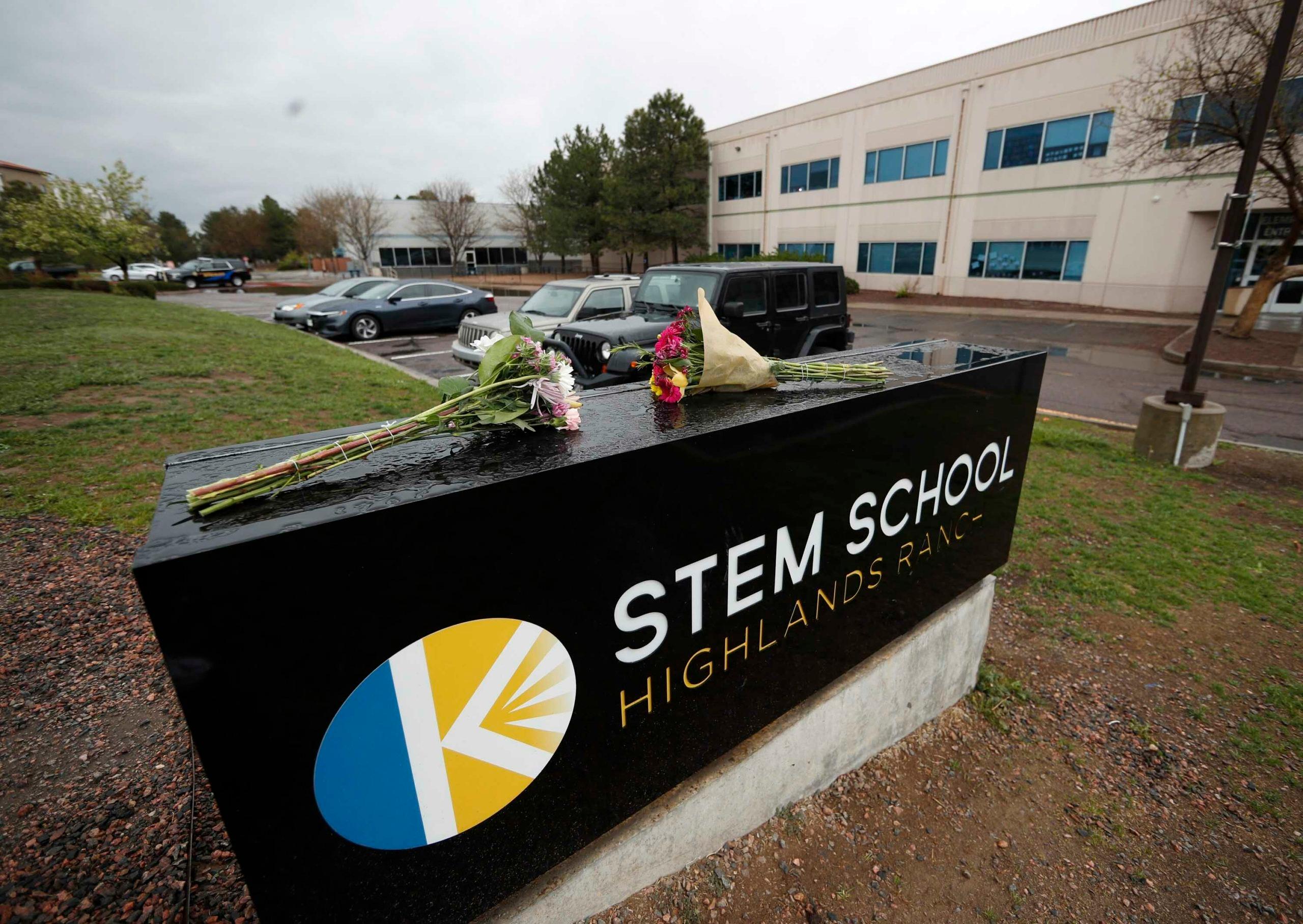
Alec McKinney, the younger alleged shooter in the Highlands Ranch STEM school shooting, will be charged as an adult in the case, a judge ruled Wednesday.
McKinney was one of two reported shooters in the Highlands Ranch STEM school earlier this year. He was 16 at the time of the shooting.
“It is of great concern that despite being involved in the juvenile justice system and seeing the potentially devastating consequences of his actions on another person’s life, McKinney moved forward with a plan to cause harm to others,” Judge Jeffrey K. Holmes wrote in the ruling issued Wednesday. “The charged offenses are of the utmost seriousness.”
In seven days of testimony in November, prosecutors made the case that McKinney, who had a troubled childhood, deserved to face more than 40 felony charges in adult court — rather than juvenile court.
His co-defendant, Devon Erickson, was 18 at the time and faces similar charges.
Prosecutors argued that despite McKinney’s rough upbringing and history of suicidal behavior, he knew what he was doing when he forced his friend to break open his father’s gun safe with an axe and bring guns to school.
They also argued that juvenile detention is no place for McKinney, that in fact, no mass shooter has ever served time in a juvenile program in the state’s history.
On May 7, two shooters opened fire in a British Literature classroom, nine classmates were shot and one, 18-year-old Kendrick Castillo, was killed.
Defense attorneys, led by public defender Ara Ohanian, painted a disturbing picture of McKinney’s childhood. His father abused his mother often in front of the kids. McKinney’s mother was a drug user and negligent. His father was deported to Mexico when McKinney was a child — but his mother continued to bring her children to Chihuahua to visit him for extended stays.
Defense attorneys also brought up the specter of mental illness, that McKinney heard voices telling him to hurt himself and hurt others. He had a history of cutting and was hospitalized six times in 2018 alone — mostly for self-harm.
McKinney is biologically a female and was born with the name Maya, but he is transgender and prefers the name Alec. His attorneys argued he would benefit from the rehabilitation programs offered in juvenile detention, rather than adult detention.
But Judge Holmes countered much of these arguments in his ruling.
“Past performance does not provide persuasive evidence that McKinney will take advantage of services that are furnished. He frequently failed to attend classes at the STEM school. He did not disclose the extent of his drug usage to his mental health providers, nor was he candid and forthcoming about matters related to his mental health to his mother or to his service providers,” Holmes said.
Prosecutors brought up several therapists, teachers and counselors who knew McKinney. They testified that they worried about him hurting himself, but that he never made any statements about hurting other people.
The reverse transfer hearing to get McKinney’s case moved to juvenile court was, in many ways, more important to his fate than anything else.
There isn’t a lot of doubt about what happened that day: Prosecutors have body camera interviews with both teen suspects, surveillance footage inside the school and several Snapchat messages between Erickson and McKinney in the hours leading up to the shooting.
“I am satisfied and pleased that the court agreed that this mass shooting case should be resolved in adult court,” Arapahoe County District Attorney George Brauchler said Wednesday, in a statement. “It is my intention to move forward without any additional delay towards the jury trial.”
In the seven days of testimony, prosecutors put several victim family members on the stand — including Jennifer Kraus whose son Mitchell was shot in the back that day. He survived, but she tearfully told the judge her family’s life would never be the same.
“He lost his friend and they wanted it to be him instead,” Kraus said. “He has this horrible guilt, the fact that he’s here.”
Castillo’s parents sat through every hour of the proceeding. They sobbed throughout, particularly when there were descriptions about their son’s death.
In the seven-page ruling, Judge Holmes acknowledged their pain.
“One victim is dead. His family is distraught. Other victims sustained gunshot wounds and the physical pain and limitations associated with such wounds,” he said. “The emotional and psychological impact of the offenses has included fear, anxiety, reluctance to return to school, decrease in trust of others, anxiety and depression. The impact on the victims has been extreme and continues more than six months after the shootings occurred.”
During the hearing, McKinney sat mostly stoic at the defense table in a grey sweatshirt. He cried when his mother testified. He also wept during many of the victims’ families testimony.
Judge Holmes, in his ruling, said he still didn’t understand the motive.
“The reasons these offenses were committed is unclear,” he wrote.
In trying McKinney in adult court, Holmes said he hopes will be a disincentive to “people planning acts of violence.”
“Rehabilitation is an important consideration in any sentence, but what treatment or interventions are necessary in this case to insure future community safety is uncertain,” he said.









